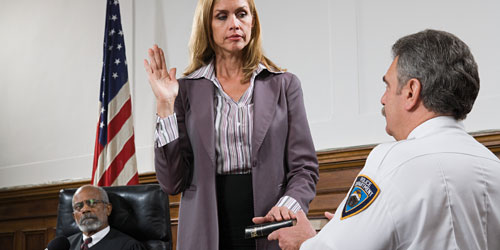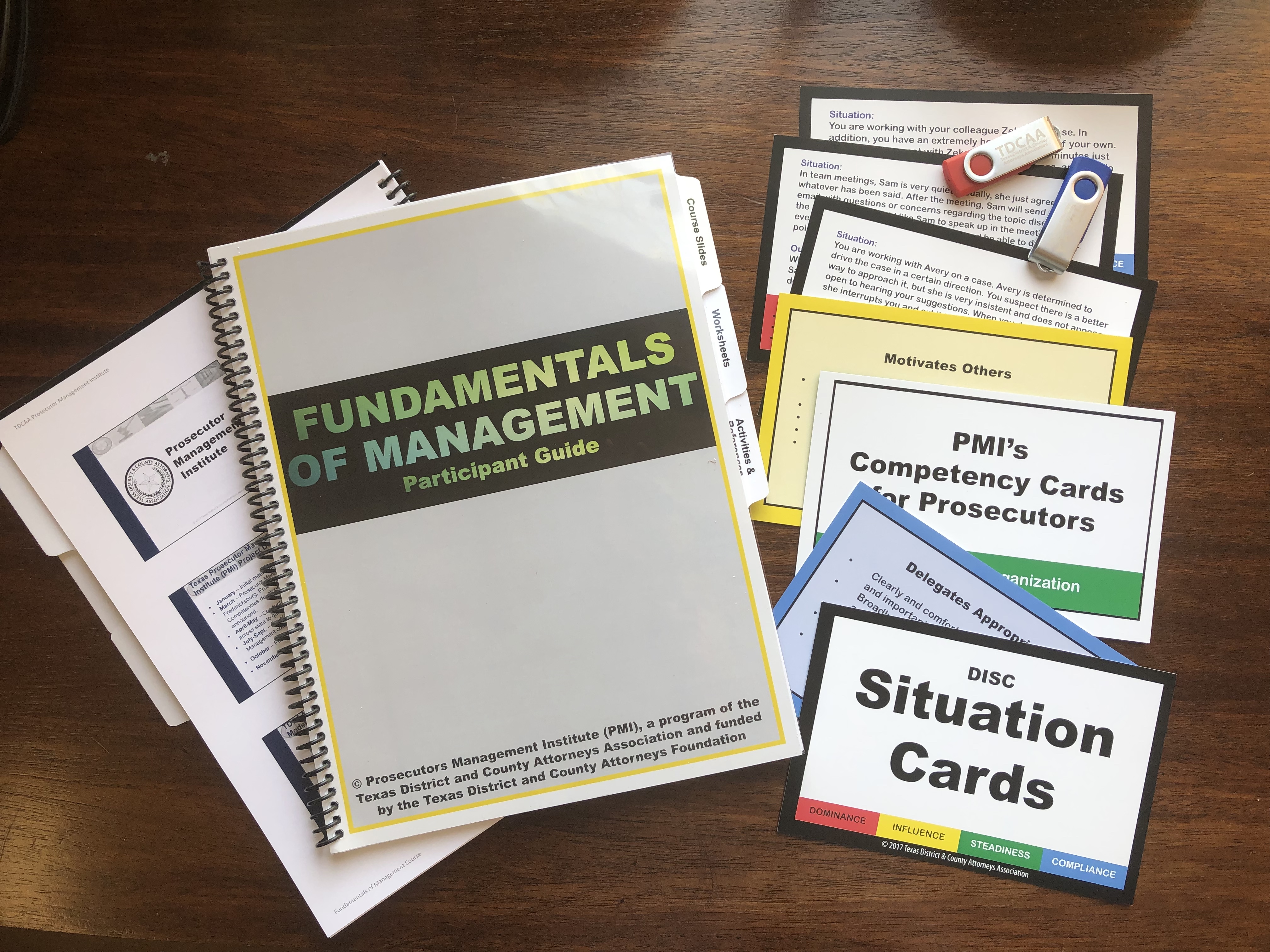Texas Court of Criminal Appeals
Salinas v. State
No. PD-0170-16 3/6/17
Issue:
Are court costs collected for “abused children’s counseling” and “comprehensive rehabilitation” under the consolidated fee statute in Local Government Code §133.102 facially unconstitutional?
Holding:
Yes. Collection and allocation of funds for these two accounts violate the separation of powers provision. The “comprehensive rehabilitation” fees go to the Health & Human Services Commission, and they are not spent exclusively on victims of crime. The “abused children’s counseling” account does not currently have a designated program and therefore is sent to the state’s General Revenue Fund. The invalidity of these two provisions does not make the entire statute unconstitutional, however. The Court concluded that any fee assessed for these two accounts under the consolidated fee statute “must be reduced pro rata to eliminate the percentage of the fee associated with these two accounts.” Read opinion.
Dissent (Yeary, J.):
“In this case the Majority decides that one of two subsections of a Texas statute is facially unconstitutional, not because the language of the subsection itself irreconcilably conflicts with the language of the Texas Constitution, but because of information the Majority observed on a website. It then declares a second subsection of the statute to be facially unconstitutional because, after monies are collected pursuant to the language of the statute, another, different statute directs those monies to be allocated to an agency that might possibly be capable of using some of those allocated funds for a non-criminal justice purpose (although Appellant has offered this Court no concrete examples of that occurring). In neither instance does the Majority demonstrate that the language of the statutory subsections are in actual conflict with the Constitution.” Read opinion.
Dissent (Newell, J.):
The dissent disagreed with the majority’s facial unconstitutionality analysis. The dissent noted that the two funds could be used for a legitimate criminal justice purpose. “That is why I do not agree with the Court that the failure of a statute to further specifically direct that the funds deposited in general revenue be used for a criminal justice purpose—aside from the limitations provided by the description of the fee itself and other interrelated statutes—means the legislature drafted a facially unconstitutional court-cost statute.” Read opinion.
Commentary:
The Court flexes its muscles under the Texas constitution and knocks out these two costs. Watch for additional challenges to other costs now that this decision has mapped out how to do it. It also bears watching because these costs are things that budget writers count on to balance the state budget during legislative season.
State v. Zuniga
No. PD-1317-15 3/8/17
Issue:
In a tampering with physical evidence case, is the specific identity of the evidence an essential element of the offense?
Holding:
No. The identity of the physical evidence is not an element of the offense, but the Court remanded the case for the court of appeals to address whether the indictment (which alleged the defendant tampered with “an unknown substance”) provided adequate notice of the charged conduct. Read opinion.
Concurrence (Yeary, J.):
The concurrence urged the court of appeals to address the additional question of whether the indictment was sufficient to inform the defendant of the acts—as opposed to the substance—the State will prosecute. Read opinion.
Dissent (Keller, J.):
The dissent argued that the defendant did not adequately raise both a defect of form and defect of substance claim. Therefore, the dissent would find the court of appeals’ judgment adequately addressed the defendant’s element-of-offense claim and her notice claim. Read opinion.
Commentary:
An interesting decision that preserves the utility of the tampering with evidence statute. It may very well be that the State simply cannot know what a defendant tampered with because the tampering was so effective. The notice claim would seem to be easily addressed by alleging that the defendant tampered with the unknown substance by swallowing it and putting it in her mouth.
Petetan v. State
No. AP-77,038 3/8/17
Issue:
In a death penalty case involving a defense claim of mental retardation, may Texas courts determine the issue of mental retardation pretrial? Should Texas courts abandon the factors set out in Ex parte Briseno, 135 S.W.3d 1 (Tex. Crim. App. 2004) in favor of clinical standards discussed in the U.S. Supreme Court’s decision in Hall v. Florida, 134 S.Ct. 1986 (2014)?
Holding:
No and No. Mental retardation claims cannot be determined pretrial. The Court previously declined to answer this question in a mandamus proceeding, In re Allen, 462 S.W.3d 47 (Tex. Crim. App. 2015). In a direct appeal, however, the Court can make new law. The Court also declined to revisit or revise Briseno. While opinions of mental-health experts are relevant to a factual determination of mental retardation, “they do not determine whether an individual is exempt from execution under Atkins.” The Court concluded that the evidence was sufficient to support a negative finding of mental retardation on both the general intellectual functioning and adaptive functioning prongs of Briseno. Read opinion.
Dissent (Alcala, J.):
The dissent would defer resolution of this appeal until the U.S. Supreme Court decides whether Texas’ legal standards for determining intellectual disability violate the 8th Amendment in Moore v. Texas, No. 15-797 (argued 11/29/16). Read opinion.
Commentary:
The Court’s holding regarding the determination of mental retardation claims is very important in prosecuting death penalty cases. The rejection of pretrial determinations of mental retardation will allow prosecutors to get these cases to trial. Resolving the “when” question may lead to more death penalty trials in the state. Furthermore, it might be a catalyst in the legislative stalemate that has existed in Texas since the Atkins decision. This holding should survive even if the Supreme Court rejects or modifies the Briseno factors.
Texas Courts of Appeals
Shalouei v. State (14th COA)
No. 14-15-01055-CR 3/7/17
Issue:
Do the sentencing statutes mandating that juveniles convicted of capital murder receive a life sentence with the possibility of parole after 40 years violate the 8th Amendment prohibition against cruel and unusual punishment?
Holding:
No. Penal Code §12.31(a)(1) and Government Code §508.145(b) & (d)(1) are not unconstitutional. The statutory requirement of serving 40 years before parole eligibility does not equate to a sentence of life without parole for a juvenile offender. Read opinion.
Commentary:
The Court applies existing CCA precedent in reaching the result.
Hayes v. State (1st COA)
No. 01-15-00982-CR 3/7/17
Issue:
Is a defense attorney required to object to the defendant’s absence from a relevant hearing at which the co-defendant is present to preserve error under the Confrontation Clause?
Holding:
No. When a trial judge sees that a defendant is not present in court for his trial, without a waiver by the defendant, the judge has an independent duty to secure the defendant’s presence in the courtroom even if the defense attorney does not request it. In this case, however, the court found the error harmless because it concluded the defendant’s presence at the hearing would not have furthered his defense. Read opinion.
Commentary:
This is a confusing case that may see further review at the Court of Criminal Appeals. From a practical standpoint, it is just one more thing for prosecutors to watch for: is there a judge, is there a defense lawyer, is the judge awake, is the defense lawyer awake, is there a court reporter, is there a defendant… The complicating factor here was that two defendant’s cases were being heard together.
Texas Attorney General Opinions
No. KP-0135 3/8/17
Issue:
Should time spent as a county employee be considered in determining county longevity pay when the employee becomes an elected officer?
Conclusion:
Provided any longevity pay is earned after a county’s adoption of a longevity policy, a court would likely conclude that a county’s longevity pay policy for county officials may include the prior service of the individual as a county employee. Read opinion.
TDCAA Training: Prosecuting Violent Crimes
TDCAA will present a Prosecuting Violent Crimes seminar for prosecutors and investigators April 11-14 at the Omni Houston Hotel at Westside. The course will cover handling victims and witnesses, prosecuting multiple defendants, self-defense claims, eyewitness identification, DNA issues, weapons, and punishment. One day of the course will be dedicated to specialized tracks on sexual assault, child victims, and domestic violence, so attendees can choose which subject(s) they need to know most.
In addition, TDCAA will offer an extra 1.75 hours of MCLE for a separate, free presentation on domestic violence through a CJD grant from the Governor’s Office. Those who attend this additional training will receive a complimentary copy of TDCAA’s Protective Orders manual and a two-sided laminated sheet on POs.
For more information or to register, click here.



